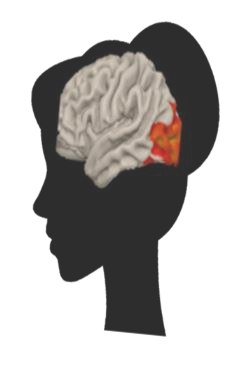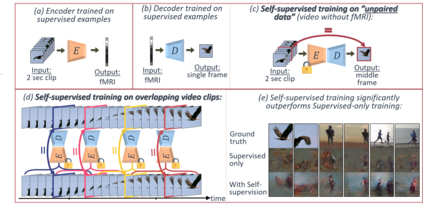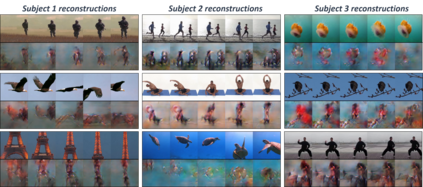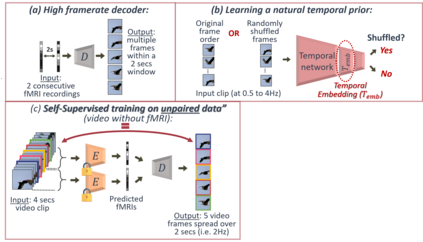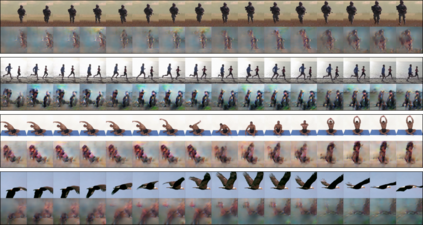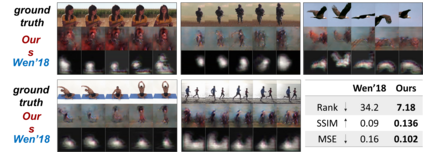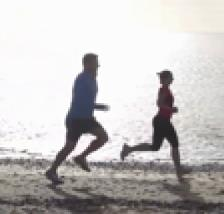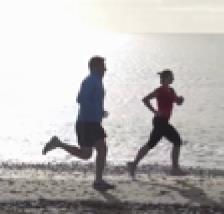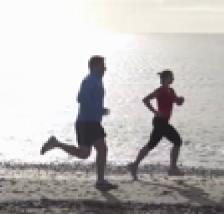Reconstructing natural videos from fMRI brain recordings is very challenging, for two main reasons: (i) As fMRI data acquisition is difficult, we only have a limited amount of supervised samples, which is not enough to cover the huge space of natural videos; and (ii) The temporal resolution of fMRI recordings is much lower than the frame rate of natural videos. In this paper, we propose a self-supervised approach for natural-movie reconstruction. By employing cycle-consistency over Encoding-Decoding natural videos, we can: (i) exploit the full framerate of the training videos, and not be limited only to clips that correspond to fMRI recordings; (ii) exploit massive amounts of external natural videos which the subjects never saw inside the fMRI machine. These enable increasing the applicable training data by several orders of magnitude, introducing natural video priors to the decoding network, as well as temporal coherence. Our approach significantly outperforms competing methods, since those train only on the limited supervised data. We further introduce a new and simple temporal prior of natural videos, which - when folded into our fMRI decoder further - allows us to reconstruct videos at a higher frame-rate (HFR) of up to x8 of the original fMRI sample rate.
翻译:从FMRI大脑录音中重建自然视频非常困难,原因有二:(一) 由于FMRI数据采集困难,我们只有有限的监管样本,不足以覆盖自然视频的巨大空间;和(二) FMRI记录的时间分辨率大大低于自然视频的框架率。在本文中,我们提议对自然电影重建采取自监方法。通过对自然视频编码使用周期一致性,我们可:(一) 利用培训视频全框架,而不限于与FMRI记录相对应的剪辑;(二) 利用大量外部自然视频,这些视频的对象从未在FMRI机内看到过。这些视频使适用的培训数据增加了几个数量级,引入了自然视频前的解码网络,以及时间一致性。我们的方法明显超越了竞争方法,因为这些培训仅以有限的监管数据为基础进行。我们还可以在自然视频更新之前引入新的和简单的时间段,当这些视频在FMRI机床结构中可以将原始的样本比例折叠成x。


